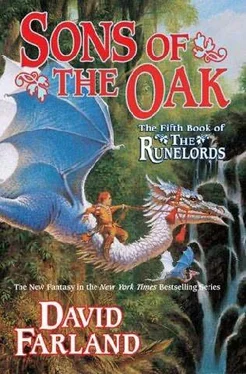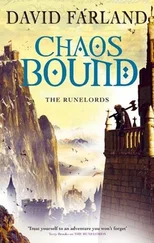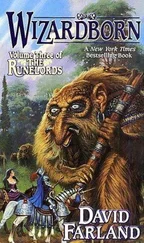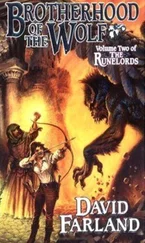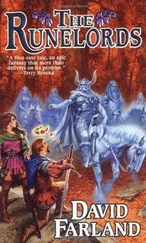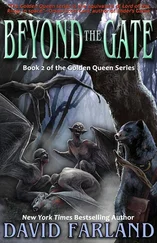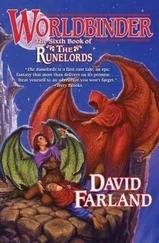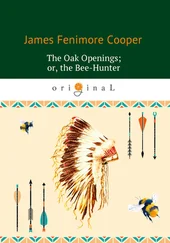David Farland - Sons of the Oak
Здесь есть возможность читать онлайн «David Farland - Sons of the Oak» весь текст электронной книги совершенно бесплатно (целиком полную версию без сокращений). В некоторых случаях можно слушать аудио, скачать через торрент в формате fb2 и присутствует краткое содержание. Жанр: Фэнтези, на английском языке. Описание произведения, (предисловие) а так же отзывы посетителей доступны на портале библиотеки ЛибКат.
- Название:Sons of the Oak
- Автор:
- Жанр:
- Год:неизвестен
- ISBN:нет данных
- Рейтинг книги:5 / 5. Голосов: 1
-
Избранное:Добавить в избранное
- Отзывы:
-
Ваша оценка:
- 100
- 1
- 2
- 3
- 4
- 5
Sons of the Oak: краткое содержание, описание и аннотация
Предлагаем к чтению аннотацию, описание, краткое содержание или предисловие (зависит от того, что написал сам автор книги «Sons of the Oak»). Если вы не нашли необходимую информацию о книге — напишите в комментариях, мы постараемся отыскать её.
Sons of the Oak — читать онлайн бесплатно полную книгу (весь текст) целиком
Ниже представлен текст книги, разбитый по страницам. Система сохранения места последней прочитанной страницы, позволяет с удобством читать онлайн бесплатно книгу «Sons of the Oak», без необходимости каждый раз заново искать на чём Вы остановились. Поставьте закладку, и сможете в любой момент перейти на страницу, на которой закончили чтение.
Интервал:
Закладка:
Fallion peered up at Stalker in surprise. He wanted to proclaim his innocence. He hadn’t killed anyone. Yet the admiration in the captain’s voice was so sincere, Fallion almost wished that he had.
What’s more, he was curious to learn about the captain. It sounded as if Stalker had been raised by wolves in human form. But the truth was even more apparent: Captain Stalker really was from pirate blood.
So as the captain made his rounds, Fallion began to clean his cabin. There was a great deal of booty lying about-wooden crates filled with Mystarria’s rarest wines, valuable books, women’s finery, valuable herbs and perfumes, jewels, and so on.
The captain had Fallion enter each item into a ledger. The wines went under his bed. The rest went into a secret compartment hidden in the wall above his bunk. Fallion was surprised at some of the items: there were twenty longbows made of Sylvarresta spring steel, for instance. These were in short supply even in Mystarria, and their sale to foreigners-potential enemies-was illegal. The bows were too powerful.
While he was stowing gear, Fallion found a wooden box in the desk. He pulled it out to discover its contents, and found a second ledger, one with ale-stained paper, its list of contents on the last page all duly verified and stamped by the harbormaster from the Courts of Tides.
Fallion compared his own ledger, the real ledger, to the one official one, and found that their contents matched nicely, so long as he only counted what was carried in the hold: hundreds of barrels of liquor, bricks of cheese, bolts of cloth, and so on. But the booty Fallion found stowed in the captain’s cabin, items that were small and valuable, were worth almost as much as everything carried below.
Stalker was a smuggler.
The realization jarred Fallion. The captain seemed to be a friendly enough sort.
Fallion dutifully stowed the gear, then got a bucket of hot water and some lye soap, and scrubbed the floors, the desk, everything.
He wanted the captain to appreciate his work. In time that appreciation would lead to trust, and the trust to greater responsibilities. Eventually, Fallion could learn how to run the whole ship.
But it all started here on the floor, he told himself. Getting the grime off.
When he was tired, he lit a candle and checked the cabin to make sure that the room was neat and cozy.
Fallion sagged into the captain’s chair behind the desk, weary to the bone. He just peered at the candle for a long moment, mesmerized by the multitude of colors in a single flame-the pale white and blue near the wick, the golds and shades of orange. He studied the way that the flame danced, stirring to unseen winds.
Fallion tried to anticipate the flame, envision which way it would bend, when it would sputter or burn low, or suddenly elongate and grow hot as it found new fuel. But he could not anticipate it. The flame seemed to surprise him, to always be just beyond his understanding.
“Are you a flameweaver?” Smoker had asked, laughing.
Now Fallion began to ask that question of himself.
He remembered how the torch had blazed in his hand when he fought the strengi-saat. He’d imagined at the time that something about the beast had caused it, as if its breath exploded like the gases deep in a mine.
But now Fallion wondered if he had summoned the inferno without thinking, so that in an instant he burned the torch to a stub.
“Torch-bearer.” That’s what the old man had called him. Fallion liked that name. A torch-bearer was someone who brought light to others.
It’s a good name, he thought. A good destiny.
He peered at the flame, willed it to burn brighter, to fill the room with light. But for as long as he watched it, nothing happened.
So he decided to bend the flames. He had heard of a lad in Heredon who could cause cinders to rise up into the sky, to hurtle up like shooting stars, or cause flowers to appear in the flames, or send them up in braids, creating a knot of light.
Fallion studied the light for a long time, tried to work his will with it.
But nothing happened.
“You must make a sacrifice to the light,” a voice seemed to whisper. It was a memory, Fallion felt sure, of something that Hearthmaster Waggit had once told him. The greater Powers could not be controlled, only served. Fallion’s father had been the Earth King because he served the earth well, suborned his will to the earth’s.
But what did the flames desire?
Food.
Fallion recalled an old joke that Hearthmaster Waggit had once told. “What do you call a young flameweaver?”
Fallion knew that there were different names for flameweavers within their order. One who could call flame into existence at will was called an incendiary. One who could burst into flame himself, stand like a fire, was called an immolator. But Fallion had never heard the names for the lowest levels of the order.
Fallion had struggled, guessing words that were unfamiliar: an apprentice? A novice? An acolyte?
Waggit had smiled. “An arsonist.”
Because they had to serve fire. They had to feed the flames continually.
Fallion took an old slip of paper from the drawer, a crumpled paper with only a few notes written on it. He wadded it up, held it above the candle.
“Come and get it,” he whispered.
The flame bent toward the paper, magically reaching out as if with a long finger, and burning into it greedily.
Fallion held the paper in his hand even as it burned, letting the flames lick his fingers for as long as he could. It surprised him at how little pain there was. He was able to withstand it for quite a while before he threw the paper down.
In that moment, Fallion felt wiser, clearer of vision than ever before.
Are you a flameweaver? the old man had asked.
“Yes,” Fallion answered.
Moments later, the captain came in, and Fallion found himself peering up into the man’s face. The books were open on the table, though Fallion had all but forgotten them.
The captain sniffed the air. “What you been burning?” he demanded.
Fallion grinned as if at a joke. “Evidence.”
Stalker grinned suspiciously, nodded with his chin, and asked, “Understand those books?”
“Your handwriting is all scribbles,” Fallion said, “but I understand. You’re a smuggler.”
The captain looked at him narrowly, as if considering. “Sometimes, a man is forced to cut corners, do somethin’ ’e don’t care for. Even a man that ’as scruples.” And it was true. Stalker had bills to pay, money that went to shadowy types that he didn’t even want to think about, and he had been forced to smuggle more and more these past four years. But the truth was, he’d always carried a little load on the side. “So’s I work some deals under the table. The fancy lords in their manors don’t know. But no one gets ’urt much. Do ya ’ate me for it?”
Fallion thought for a long moment, wondering if Stalker had a locus.
If he does, Fallion wondered, why is he trying to befriend me?
Stalker interrupted his thoughts, “Who owns wealth?”
“Those who create it, I guess,” Fallion said.
Stalker considered his own ill fortune, and frowned. “That’s who should own it, but that’s not who does own it. Not in the end. Gold flows into your ’ands, and gold flows out. There’s many a man who works ’ard for his pay, works his whole life. But in the end you’re just food for the worms in the ground. You’ll lose it sure, when you die, but probably sooner. Maybe you lose it ’cause you’re a fool, so you throw it to the wind on a ship that runs aground. Or you lose it to drink or whores-or worse, you waste it on the damned poor, them what never has figured out ’ow to make it on their own. In the end, we all lose it.
Читать дальшеИнтервал:
Закладка:
Похожие книги на «Sons of the Oak»
Представляем Вашему вниманию похожие книги на «Sons of the Oak» списком для выбора. Мы отобрали схожую по названию и смыслу литературу в надежде предоставить читателям больше вариантов отыскать новые, интересные, ещё непрочитанные произведения.
Обсуждение, отзывы о книге «Sons of the Oak» и просто собственные мнения читателей. Оставьте ваши комментарии, напишите, что Вы думаете о произведении, его смысле или главных героях. Укажите что конкретно понравилось, а что нет, и почему Вы так считаете.
